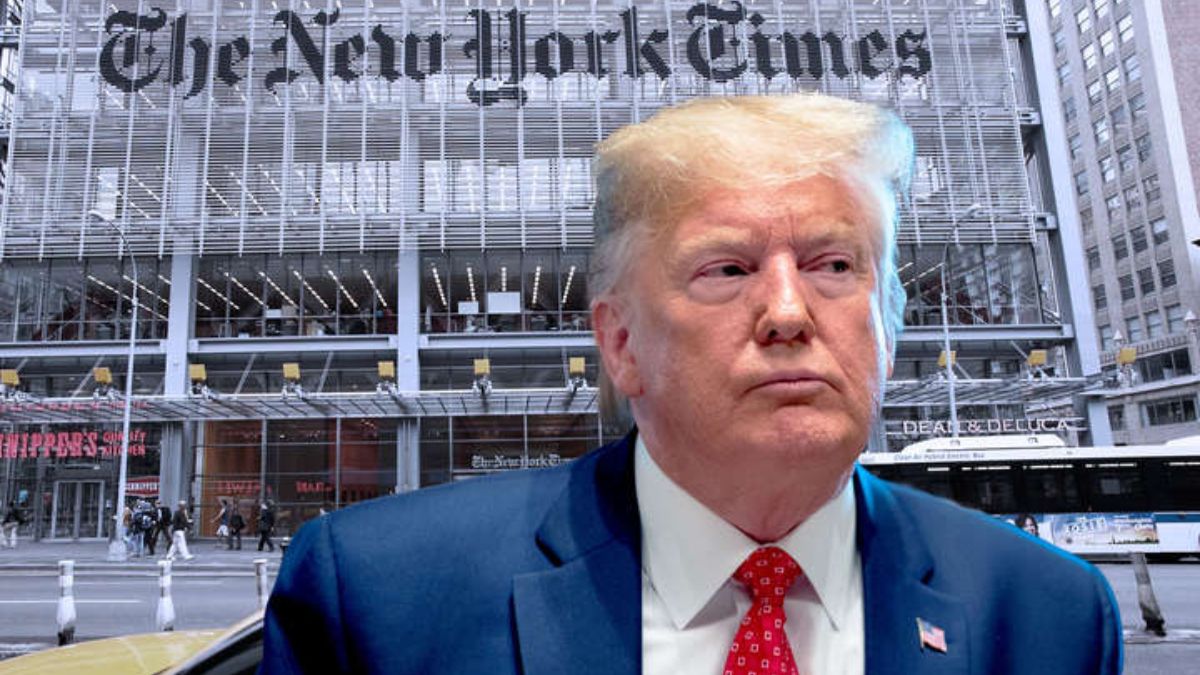Necessary Always Active
Necessary cookies are required to enable the basic features of this site, such as providing secure log-in or adjusting your consent preferences. These cookies do not store any personally identifiable data.
|
||||||
|
||||||
|
||||||
|

Donald Trump has initiated a $15 billion defamation lawsuit against The New York Times, accusing the publication of deliberate false reporting and bias against him and his political movement. According to NDTV, the lawsuit, filed in Florida, alleges a long-standing pattern of malicious defamation by the Times targeting Trump, his family, and his business interests.
The $15 billion defamation lawsuit focuses on multiple articles and a book authored by Times journalists, claiming these publications were part of a sustained effort to misrepresent Trump’s actions and character.
The legal filing details several significant allegations:
The filing explicitly refers to the Trump NYT defamation filing as one of the most aggressive in recent political litigation history. It states that the paper has repeatedly ignored factual corrections, prompting Trump’s decision to escalate the matter legally.
The Trump sues New York Times for $15 billion action follows a history of similar legal measures by Donald Trump against major media organizations. His prior lawsuits against ABC and CBS alleged the use of doctored material aimed at discrediting him, resulting in record settlements. These cases, widely reported in industry media, have set a precedent for high-stakes litigation involving media accountability.
Industry experts suggest the timing of this lawsuit coincides with heightened tensions over journalistic objectivity and media bias in the current political climate. The case raises questions about why Trump is suing the New York Times, pointing to his belief that the newspaper’s persistent false reporting has caused significant personal and political harm.
This lawsuit holds significant implications for media organizations and business leaders who rely on accurate reporting. In particular, B2B decision-makers who depend on trustworthy news sources for insights into political developments and corporate reputations may see increased scrutiny of media outlets’ journalistic standards. Earlier this month, President Donald Trump hosted a high-profile Trump dinner with tech CEOs at the White House, bringing together more than 30 leaders from major technology companies.
Business Implications of the Lawsuit:
Legal analysts note that the outcome of the Trump NYT defamation filing could establish important legal precedents related to freedom of the press versus individual defamation rights. It may also influence how media outlets approach coverage of controversial political topics, especially in the United States. In June, 2025, Donald Trump proposed a 10-year ban on US states from creating their own laws to regulate artificial intelligence (AI).
Experts predict the impact on NYT of Trump’s lawsuit will be substantial, with potential financial, reputational, and operational consequences depending on the court’s ruling. Media organizations may need to reassess editorial guidelines to avoid exposure to future high-value defamation claims.
The Trump sues New York Times for 15 billion defamation lawsuit filed by Donald Trump against The New York Times represents a pivotal moment in media and political relations. As the case advances through the judicial system, it could redefine how defamation is assessed in politically charged environments.